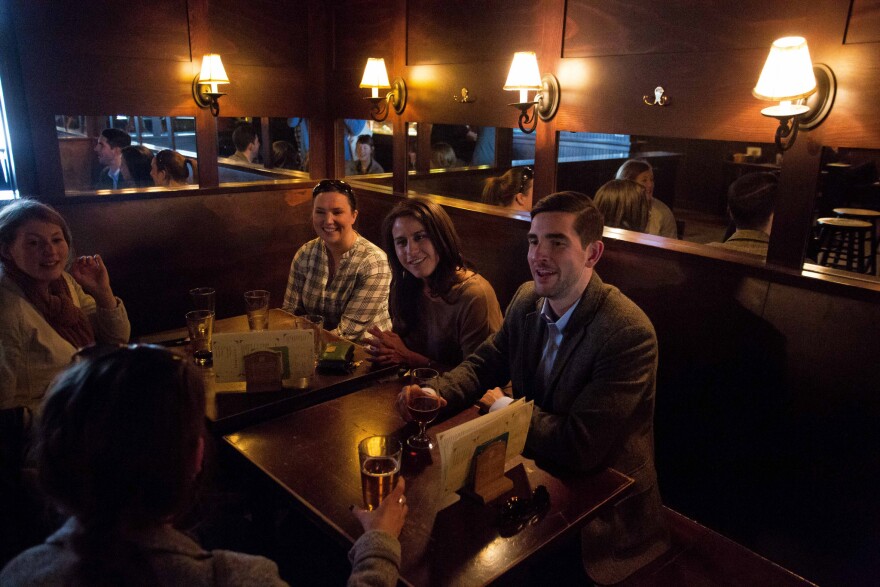Attend the Mayor Steve Adler's annual State of the City address with a group of 20- and 30-somethings and you’re likely to catch at least one reference to NBC’s comedy “Parks and Recreation.” In the show, comedian Amy Poehler plays the excitable head of a small city’s parks and recreation department. As Amy Stansbury, 26, knows, the image the show paints of local government is less than flattering.
“I love when they have those parts where people are talking at City Council meetings and they’re like, ‘You put a sign out that said don’t drink the water and I drank the water and then I got sick!’” said Stansbury.
Stansbury is a member of the Austin Young Chamber of Commerce. She and other members gathered at the Ginger Man on 4th Street an hour before the Adler was scheduled to begin his speech. Their immediate plan was to enjoy a beer (or two) before walking the two blocks to City Hall for the mayor’s annual speech. Their longterm plan? Encourage a younger generation to engage with City Hall.
“There are a lot of younger people here and I don’t feel like we participate in a big way at City Hall or with City Council,” said Stansbury.
And while sighting a young person at a city committee meeting might be uncommon, their concerns for Austin's future are not.

“I hope he addresses affordability,” said Kyle Kerrigan, 29, when asked what he hoped Mayor Adler would focus on in his speech. “I hope he addresses CodeNEXT. And I think at this time we also have to focus on jobs.”
Adler delivered on these topics. On the topic of housing, he prescribed building 135,000 new housing units over the next decade in order to stabilize housing prices.
For Stansbury, that sounded great. Currently, the median home price in Travis County hovers around $335,000.
“Maybe you want to buy a house some day and then you start to look around at where you may be able to buy that house and you’re like, ‘Oh, I can’t. Awesome,’” she said.
On the city’s rewrite of its land development code, or CodeNEXT, the mayor stressed finding a balance between neighborhood preservation and increased housing stock. Despite the fact that the former tends to block the latter, Adler urged a compromise.
“I would propose that we agree not to force density in the middle of neighborhoods,” said Adler. “And in exchange, as part of this bargain, let’s also agree that we will adopt a code rewrite that will give us the housing supply we need.”
It was a theme echoed throughout Adler’s speech: Austin needs to grow, but in a way that preserves its musicians and low-income residents.
“The spirit and soul of Austin endures not in spite of all the changes we see but as an integral part,” said Adler. “Austin is uncommonly good at changing in a way that renews our unique character.”
All of this rang true for Kendal Asuncion, 30.
“That’s the inherent issue with cities…that they’re by nature changing,” she said. “And you can capture it but you can’t hold on forever.”
"He talked a lot about our capacity for change, and that was just interesting to me," said Melanie Martin, 26. "We're standing in the way of that change when we should be embracing it and figuring out how to solve the problems that come along with that change."
These were all notes we expected him to hit. But then there was the moment when the Mayor went, as he said, off-script. He turned to the news of the day: President Donald Trump’s executive order banning refugees immigrants from seven Muslim-majority nations.
“I just want the immigrant and refugee community in this city to know that we are a welcoming and supportive community and that they are an important part of our community and in this community they should feel welcome and safe,” Adler said.
“Rousing” is not an adjective often applied to the Mayor's speeches. But with those lines he appeared to stir audience members of all ages.




